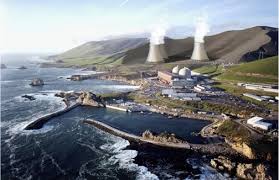Moving Nuclear from Proactive to Reactive regulation
|
v1
|
166 KB
|
April 3, 2025
|
Downloads: 3
|
A Plug In Replacement for LNT
|
v6a
|
936 KB
|
March 30, 2025
|
Downloads: 52
|
SNT Poster
|
v1
|
48 KB
|
March 11, 2025
|
Downloads: 5
|
The Gordian Knot Group Manifesto
|
v3
|
44 KB
|
March 11, 2025
|
Downloads: 3
|
Where are the Revolutionaries?
|
v1
|
160 KB
|
March 9, 2025
|
Downloads: 2
|
SNT and EPA’s Maximum Individual Risk
|
v2
|
171 KB
|
March 5, 2025
|
Downloads: 1
|
Lies, Damned Lies, and Probabilistic Risk Assessment
|
v2
|
274 KB
|
April 2, 2025
|
Downloads: 5
|
Why is INPO a far better regulator than the NRC?
|
v2
|
101 KB
|
February 10, 2025
|
Downloads: 4
|
The Political Feasibility of UCert
|
v1
|
75 KB
|
February 6, 2025
|
Downloads: 0
|
Thinking Quantitatively about CO2 Uncertainty
|
v2
|
297 KB
|
February 2, 2025
|
Downloads: 6
|
A Modest Proposal for Resolving our Differences on CO2
|
v1
|
189 KB
|
February 1, 2025
|
Downloads: 1
|
The Second Miracle
|
v1
|
242 KB
|
January 28, 2025
|
Downloads: 3
|
The Two Lies that Killed Nuclear Power
|
vF
|
764 KB
|
January 25, 2025
|
Downloads: 201
|
The Illusory Learning Curve
|
v1
|
231 KB
|
January 24, 2025
|
Downloads: 2
|
What if tanker crew deaths are intolerable?
|
v1
|
2 MB
|
January 14, 2025
|
Downloads: 2
|
The Total Dose Cult
|
v2
|
162 KB
|
January 8, 2025
|
Downloads: 2
|
RERF experts claim their bomb survivor solid cancer mortality data is non-linear
|
v1
|
695 KB
|
January 8, 2025
|
Downloads: 2
|
All models are wrong, but some are tragically misleading
|
v1
|
220 KB
|
December 30, 2024
|
Downloads: 3
|
The NRC Mission Statement
|
v1
|
73 KB
|
December 26, 2024
|
Downloads: 2
|
Is it time for BEIR VIII?
|
v2
|
1 MB
|
December 21, 2024
|
Downloads: 11
|
SNT and the Union of Concerned Scientists
|
v1
|
272 KB
|
November 15, 2024
|
Downloads: 9
|
Why the NT in SNT?
|
v1
|
261 KB
|
November 15, 2024
|
Downloads: 3
|
A Better SNT?
|
v1
|
576 KB
|
November 15, 2024
|
Downloads: 4
|
Will space travel force us to think dynamically about radiation harm?
|
v1
|
78 KB
|
November 15, 2024
|
Downloads: 4
|
The Fukushima Workers, Part 2
|
v1
|
4 MB
|
November 6, 2024
|
Downloads: 4
|
SNT and the Fukushima Personnel
|
v3
|
8 MB
|
October 30, 2024
|
Downloads: 10
|
The Case for 2 mSv per Day
|
v2.2
|
1 MB
|
February 4, 2025
|
Downloads: 39
|
ANS Position Statement on LNT
|
v1
|
76 KB
|
October 19, 2024
|
Downloads: 1
|
The REPOWER Plan
|
v2
|
4 MB
|
October 17, 2024
|
Downloads: 44
|
Low Capacity Factor CO2 Intensity
|
v1
|
83 KB
|
October 7, 2024
|
Downloads: 2
|
REPOWER FAQ
|
v3
|
155 KB
|
October 5, 2024
|
Downloads: 5
|
The Three Mile Island 1 Restart
|
v2
|
198 KB
|
October 1, 2024
|
Downloads: 5
|
President’s Speech on the Power Grid
|
v2
|
153 KB
|
October 2, 2024
|
Downloads: 5
|
SNT is Too Conservative
|
v1
|
200 KB
|
September 27, 2024
|
Downloads: 2
|
ALARA’s not so bad. What about Korea, China?
|
v1
|
232 KB
|
September 27, 2024
|
Downloads: 4
|
Underwriter Certification Of Nuclear Power
|
vF
|
11 MB
|
October 31, 2024
|
Downloads: 135
|
Malthusians and Misanthropes
|
v2
|
2 MB
|
September 21, 2024
|
Downloads: 2
|
The Church of the Environment
|
v1
|
835 KB
|
September 21, 2024
|
Downloads: 4
|
Green Table Documentation
|
v4
|
554 KB
|
February 25, 2025
|
Downloads: 27
|
Replacing Fossil Fuel
|
v2
|
2 MB
|
September 13, 2024
|
Downloads: 5
|
Malthusians and Misanthropes
|
v1
|
2 MB
|
September 11, 2024
|
Downloads: 2
|
The Establishment Knows the RERF Acute Response is Non-Linear
|
v3
|
960 KB
|
September 3, 2024
|
Downloads: 8
|
Put the Ratepayer in Charge
|
v1
|
873 KB
|
August 28, 2024
|
Downloads: 3
|
Nuclear Magic. Where’s the throttle?
|
v2
|
133 KB
|
August 21, 2024
|
Downloads: 3
|
Standalone SNT Slides
|
v5a
|
3 MB
|
March 6, 2025
|
Downloads: 11
|
The Linear No Threshold Theory (Slides)
|
v3a
|
3 MB
|
February 24, 2025
|
Downloads: 67
|
The Dumbest Graph of all Time
|
|
323 KB
|
August 13, 2024
|
Downloads: 12
|
Yes, we could have another Chernobyl.
|
v1
|
623 KB
|
August 11, 2024
|
Downloads: 4
|
The Importance of Dunkelflauten
|
v1
|
260 KB
|
August 1, 2024
|
Downloads: 6
|
The Dense-Packing Fiasco
|
v2
|
326 KB
|
August 7, 2024
|
Downloads: 3
|
Whatabout-the-releases slides.
|
v1
|
9 MB
|
July 28, 2024
|
Downloads: 53
|
Spent Nuclear Fuel Slides
|
v6
|
5 MB
|
July 23, 2024
|
Downloads: 178
|
The Jacobson Roadmap
|
v2
|
520 KB
|
July 18, 2024
|
Downloads: 5
|
The Mother of All Tragedies
|
v1
|
196 KB
|
July 11, 2024
|
Downloads: 10
|
The NuScale Scam
|
v1
|
1 MB
|
July 2, 2024
|
Downloads: 14
|
You want nuclear waste. I’ll show you nuclear waste.
|
v5
|
3 MB
|
June 30, 2024
|
Downloads: 37
|
A Zero Fossil Grid Makes Sense for Nobody
|
V1
|
99 KB
|
June 29, 2024
|
Downloads: 5
|
Expensive Nuclear Power’s Dirty Secret
|
V2
|
221 KB
|
June 26, 2024
|
Downloads: 58
|
600 year old spent nuclear fuel is just another poison
|
vE
|
4 MB
|
December 2, 2024
|
Downloads: 90
|
Underwriter Certification of Nuclear Power, Part 2
|
v2
|
12 MB
|
June 14, 2024
|
Downloads: 41
|
Underwriter Certification of Nuclear Power, Part 1
|
v2
|
2 MB
|
June 14, 2024
|
Downloads: 54
|
Sigmoid No Threshold Slides
|
V5
|
1 MB
|
March 6, 2025
|
Downloads: 94
|
Radiation Damage and Repair (slides)
|
v5
|
2 MB
|
February 17, 2025
|
Downloads: 240
|
LNT: the no repair theory of radiation harm
|
v4
|
3 MB
|
May 27, 2024
|
Downloads: 115
|
SNT Primer
|
v4
|
232 KB
|
May 19, 2024
|
Downloads: 13
|
The GKG Grid Model
|
3
|
343 KB
|
April 30, 2024
|
Downloads: 16
|
Should-Cost Nuclear And Human Ignorance
|
3
|
260 KB
|
April 21, 2024
|
Downloads: 32
|
Underwriter Certification and the Banks
|
1
|
117 KB
|
April 3, 2024
|
Downloads: 6
|
A Desecrated Pledge: The Nuclear Non-Proliferation Treaty
|
2
|
404 KB
|
March 28, 2024
|
Downloads: 11
|
Zero Risk or Negligible Risk
|
3
|
258 KB
|
March 27, 2024
|
Downloads: 13
|
Is There A Cotwus Out There?
|
1
|
43 KB
|
March 24, 2024
|
Downloads: 13
|
Turquoise Hydrogen
|
1
|
3 MB
|
March 24, 2024
|
Downloads: 12
|
Expensive Nuclear Is Not Nearly Good Enough
|
1
|
152 KB
|
March 19, 2024
|
Downloads: 32
|
Only Autocracy Can Save Nuclear Power
|
1
|
88 KB
|
March 19, 2024
|
Downloads: 15
|
The University of Washington Cesium Release
|
2
|
3 MB
|
March 19, 2024
|
Downloads: 11
|
Real Quality Enforcement
|
2
|
190 KB
|
March 19, 2024
|
Downloads: 9
|
The LNT-Is-Not-Inconsistent-With-The-Data Argument
|
1
|
169 KB
|
March 19, 2024
|
Downloads: 8
|
Ted Rockwell’s Crusade To Kill The Golden Goose
|
1
|
165 KB
|
March 19, 2024
|
Downloads: 11
|
Can We Have Release Without Panic
|
1
|
247 KB
|
March 19, 2024
|
Downloads: 8
|
Electricity’s Fundamental Flaw
|
2
|
82 KB
|
March 18, 2024
|
Downloads: 13
|
The Centrus Fiasco
|
3
|
96 KB
|
March 18, 2024
|
Downloads: 15
|
The Nuscale Debacle
|
1
|
53 KB
|
March 18, 2024
|
Downloads: 15
|
Thinking Through Linear with Threshold
|
3
|
283 KB
|
March 18, 2024
|
Downloads: 16
|
No rational investor can play by these rules
|
2
|
110 KB
|
March 18, 2024
|
Downloads: 7
|
Karma at Monticello
|
1
|
2 MB
|
March 18, 2024
|
Downloads: 10
|
The Two Lies and Ukraine
|
1
|
53 KB
|
March 18, 2024
|
Downloads: 14
|
Underwriter Certification of Nuclear Power, 2.0
|
4
|
4 MB
|
March 18, 2024
|
Downloads: 10
|
The Westinghouse Kepco Suit
|
1
|
60 KB
|
March 15, 2024
|
Downloads: 9
|
Nimby or Yimby
|
1
|
2 MB
|
March 15, 2024
|
Downloads: 15
|
Cooling Towers are not Cool
|
2
|
247 KB
|
March 15, 2024
|
Downloads: 7
|
There are no solutions, only tradeoffs
|
1
|
119 KB
|
March 15, 2024
|
Downloads: 5
|
Blame the Crew
|
v2
|
881 KB
|
March 17, 2024
|
Downloads: 7
|
Moving the Moab Pile
|
3
|
476 KB
|
March 15, 2024
|
Downloads: 7
|
The Trouble with Fusion
|
3
|
653 KB
|
March 15, 2024
|
Downloads: 14
|
A Tale of Two Ships
|
4
|
109 KB
|
March 15, 2024
|
Downloads: 12
|
Joe Sixpack and Nuclear Power
|
1
|
384 KB
|
March 15, 2024
|
Downloads: 6
|
Teller and the Two Lies
|
2
|
117 KB
|
March 15, 2024
|
Downloads: 12
|
LNT Is Prudent
|
1
|
276 KB
|
March 15, 2024
|
Downloads: 7
|
LNT is Nonsense
|
2
|
105 KB
|
March 15, 2024
|
Downloads: 9
|
Nuclear Quality: the N-stamp
|
v4
|
239 KB
|
January 24, 2025
|
Downloads: 11
|
Minimize Radiation Exposure Without Regard To Economic And Social Costs
|
2
|
100 KB
|
March 15, 2024
|
Downloads: 4
|
A 50 Million Dollar Hairline Crack
|
2
|
100 KB
|
March 15, 2024
|
Downloads: 7
|
Nuclear Cannot Loadfollow
|
2
|
257 KB
|
March 13, 2024
|
Downloads: 7
|
Nuclear’s Strange Politicization
|
1
|
423 KB
|
March 13, 2024
|
Downloads: 5
|
Nuclear Power is Too Safe
|
3
|
122 KB
|
March 13, 2024
|
Downloads: 11
|
What is Nuclear’s Should-Cost
|
3
|
1 MB
|
March 13, 2024
|
Downloads: 9
|
Prototype Testing in Practice
|
1
|
807 KB
|
March 13, 2024
|
Downloads: 5
|
Hawaii and Pele’s Energy
|
3
|
619 KB
|
March 12, 2024
|
Downloads: 7
|
The Case for a Protopark at Hanford
|
1
|
271 KB
|
March 12, 2024
|
Downloads: 3
|
Prototypes should be tortured, not licensed.
|
1
|
207 KB
|
March 13, 2024
|
Downloads: 4
|
Honesty is the Best Policy
|
2
|
86 KB
|
March 12, 2024
|
Downloads: 7
|
Circling the LNT Wagons: the INWORKS Study
|
v5
|
195 KB
|
June 21, 2024
|
Downloads: 22
|
The Worst Health Hazard of All Is Being Poor
|
1
|
3 MB
|
March 12, 2024
|
Downloads: 6
|
Thinking Through Linear With Threshold
|
3
|
283 KB
|
March 12, 2024
|
Downloads: 4
|
Same Birthdays and Double Double Strand Breaks
|
4
|
1 MB
|
March 12, 2024
|
Downloads: 9
|
Nuclear Power not only should be cheap, it was cheap. 3 cents/kWh cheap
|
2
|
1 MB
|
March 12, 2024
|
Downloads: 15
|
Draft Compensation Pamphlets
|
v2
|
2 MB
|
March 12, 2024
|
Downloads: 19
|
ALARA is a showstopper
|
3
|
212 KB
|
March 12, 2024
|
Downloads: 14
|
Anyone who focuses on total dose is an LNTer
|
2
|
93 KB
|
March 12, 2024
|
Downloads: 5
|
Kerala Cancer Update: 2021
|
2
|
118 KB
|
March 12, 2024
|
Downloads: 7
|
SNT for the non-technical
|
2
|
245 KB
|
March 12, 2024
|
Downloads: 41
|
The Radium Dial Painters and SNT
|
1
|
116 KB
|
March 12, 2024
|
Downloads: 7
|
An Ugly Hypothesis shot down by a beautiful fact.
|
2
|
504 KB
|
March 12, 2024
|
Downloads: 7
|
How can NRC-style regulation be so expensive?
|
1
|
250 KB
|
March 12, 2024
|
Downloads: 9
|
Defending LNT and the Goldstandard
|
1
|
113 KB
|
March 12, 2024
|
Downloads: 7
|
Leave Town or Hunker Down?
|
3
|
1 MB
|
March 12, 2024
|
Downloads: 8
|
The Wind at Fukushima
|
v4
|
705 KB
|
March 12, 2024
|
Downloads: 56
|
SNT and LNT at Fukushima
|
4
|
705 KB
|
March 12, 2024
|
Downloads: 12
|
The Price Anderson Suicide Pact
|
2
|
433 KB
|
March 12, 2024
|
Downloads: 10
|
Compensating Radiation Harm
|
v6
|
4 MB
|
March 12, 2024
|
Downloads: 37
|
Camp Century
|
2
|
2 MB
|
March 12, 2024
|
Downloads: 8
|
TMI Lessons: What was learned; what should have been learned.
|
1
|
1,005 KB
|
March 12, 2024
|
Downloads: 6
|
The Davis Besse Warning
|
2
|
307 KB
|
March 12, 2024
|
Downloads: 8
|
The NRC at Three Mile Island
|
3
|
270 KB
|
March 12, 2024
|
Downloads: 9
|
Can we have a radioactive release without a panic?
|
1
|
247 KB
|
March 12, 2024
|
Downloads: 4
|
Why are we so good at repairing radiation damage?
|
1
|
378 KB
|
March 12, 2024
|
Downloads: 6
|
Rogue Bureaucracies Flaunt NRC/EPA Radiation Rules
|
3
|
695 KB
|
March 12, 2024
|
Downloads: 5
|
Policy Implications of SNT
|
2
|
156 KB
|
March 12, 2024
|
Downloads: 11
|
Eating Bavarian Boar
|
2
|
2 MB
|
March 12, 2024
|
Downloads: 6
|
Replacing LNT with SNT
|
v8
|
3 MB
|
March 12, 2024
|
Downloads: 25
|
The University of Washington Cesium Release
|
1
|
3 MB
|
March 12, 2024
|
Downloads: 6
|
Nuclear Plants Need Buffer Zones
|
v3
|
918 KB
|
January 11, 2025
|
Downloads: 10
|
Makhijani’s Exploring Tritium Danger
|
4
|
198 KB
|
March 12, 2024
|
Downloads: 7
|
The Rise and Fall of Yankee Rowe
|
1
|
5 MB
|
March 12, 2024
|
Downloads: 7
|
Nuclear energy, not a Faustian bargain, but a near-providential gift.
|
1.0
|
96 KB
|
March 12, 2024
|
Downloads: 20
|
What’s wrong with being cautious?
|
1.0
|
48 KB
|
March 12, 2024
|
Downloads: 18
|
Slides for Talking Nuclear, Stage 2
|
1
|
678 KB
|
March 12, 2024
|
Downloads: 27
|
Slides for Talking Nuclear, Stage 1
|
1
|
5 MB
|
March 12, 2024
|
Downloads: 36
|
Trivial Tritium
|
1
|
454 KB
|
March 12, 2024
|
Downloads: 11
|
Are the climate models running hot?
|
v6
|
295 KB
|
March 12, 2024
|
Downloads: 18
|
Is Big Oil the reason nuclear power flopped?
|
v9
|
389 KB
|
January 26, 2025
|
Downloads: 91
|
Nuclear is Too Costly
|
v6
|
544 KB
|
March 12, 2024
|
Downloads: 67
|
Nuclear and Wind/Solar
|
2
|
241 KB
|
March 12, 2024
|
Downloads: 60
|
SNT and Internal Radiation
|
1
|
479 KB
|
March 12, 2024
|
Downloads: 14
|
Underwriter regulation of nuclear power
|
v3
|
111 KB
|
March 12, 2024
|
Downloads: 16
|
The Nuclear Revival that Never Was
|
2
|
93 KB
|
March 12, 2024
|
Downloads: 11
|
A Plan That Adds Up. An Engineer Looks at Global Warming, part 3.
|
v5
|
1 MB
|
March 12, 2024
|
Downloads: 29
|
Low CO2 Electricity: The Options For Germany
|
v5
|
463 KB
|
March 12, 2024
|
Downloads: 75
|
Nuclear is Too Slow
|
5
|
601 KB
|
March 12, 2024
|
Downloads: 20
|
How Not to Handle a Radiation Release
|
1.0
|
114 KB
|
March 12, 2024
|
Downloads: 20
|
Expensive nuclear is no where good enough
|
1.0
|
43 KB
|
March 12, 2024
|
Downloads: 16
|
The Disposal of Radioactive Wastes from Fission Reactors
|
1.0
|
723 KB
|
March 12, 2024
|
Downloads: 16
|
What must we replace? An Engineer Looks at Global Warming, Part 2
|
1.0
|
2 MB
|
March 12, 2024
|
Downloads: 30
|
How much time do we have? An Engineer Looks at Global Warming, Part 1
|
v3
|
5 MB
|
March 12, 2024
|
Downloads: 44
|
Preserving Nuclear Ore
|
1.0
|
2 MB
|
March 12, 2024
|
Downloads: 33
|
Trashing the Molten Salt Reactor Experiment
|
2
|
861 KB
|
March 12, 2024
|
Downloads: 68
|
The GKG Grid Model
|
1.0
|
262 KB
|
March 12, 2024
|
Downloads: 48
|
Nuclear and Dunkleflauten
|
1.0
|
463 KB
|
March 12, 2024
|
Downloads: 38
|
Wilderness Preservation to Rural Industrialization
|
1.0
|
5 MB
|
March 12, 2024
|
Downloads: 43
|
The Lessons of Three Mile Island
|
1.0
|
347 KB
|
March 12, 2024
|
Downloads: 41
|
Shipyard Production of Nuclear Power Plants
|
v1
|
105 KB
|
March 12, 2024
|
Downloads: 88
|
Green Hydrogen and Dunkleflauten
|
1.0
|
5 MB
|
March 12, 2024
|
Downloads: 89
|
Deep Geological Hubris
|
|
264 KB
|
March 12, 2024
|
Downloads: 66
|
Creating the New World
|
chapter 7
|
517 KB
|
March 12, 2024
|
Downloads: 140
|
Nuclear Power – Frequently Asked Questions
|
v11
|
2 MB
|
March 12, 2024
|
Downloads: 256
|



